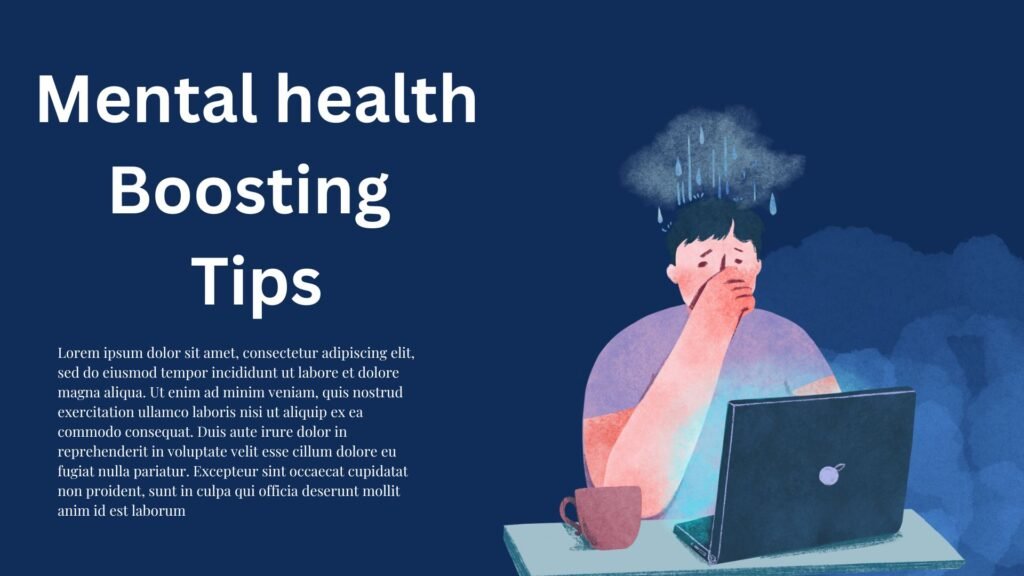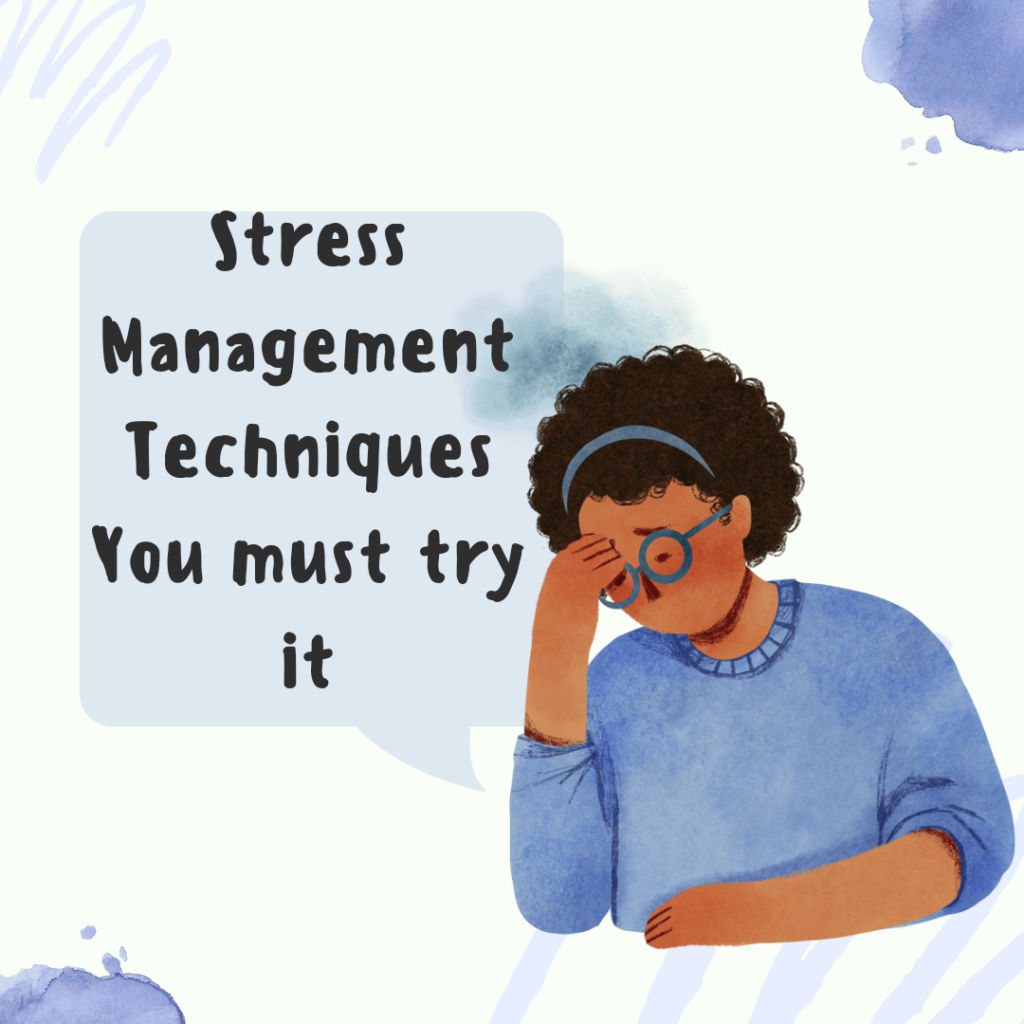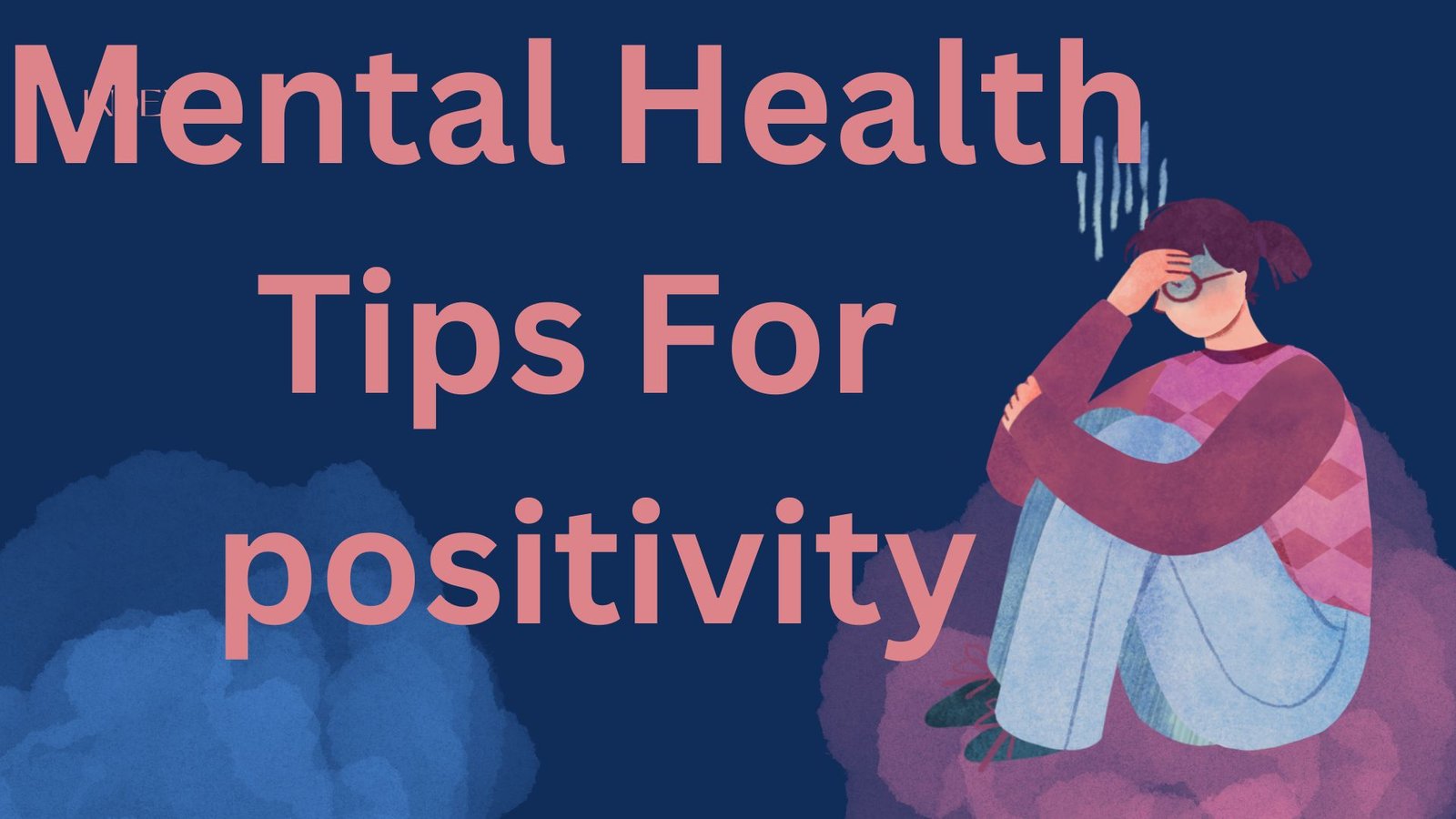Introduction
In 2024, mental health is more important than ever. With the increasing pressures of daily life, it’s crucial to nurture your mental well-being and cultivate a positive mindset. Whether you’re dealing with stress, anxiety, or just seeking ways to feel more balanced, this article provides practical mental health tips to help you stay positive and resilient.

1. Start Your Day with Positive Affirmations
Your mindset sets the tone for the rest of the day. By practicing positive affirmations in the morning, you can reinforce a sense of self-worth and optimism.
- Repeat empowering statements like “I am capable,” “Today will be great,” or “I am in control of my thoughts.”
- Visualize your goals and remind yourself of your strengths.
- This practice can help improve your mood and reduce feelings of stress and negativity.
2. Practice Mindfulness and Meditation
Mindfulness and meditation are proven strategies for improving mental clarity and reducing anxiety.
- Spend 10-20 minutes each day in meditation to quiet the mind and focus on your breath.
- Engage in mindfulness exercises like mindful walking or eating to help you stay present in the moment.
- These practices can promote relaxation, reduce stress, and help you develop a more positive outlook.
3. Prioritize Self-Care
Taking care of your mental health means making time for yourself. Self-care is essential for rejuvenating the mind and body.
- Schedule regular breaks during the day to recharge, whether through a walk outside or reading a book.
- Treat yourself to activities you enjoy, such as a hobby or spending time with loved ones.
- Invest in your well-being by ensuring you get adequate sleep, eat healthy, and stay active.
4. Build Strong Support Networks
Having a strong support system is one of the most important factors in maintaining mental wellness.
- Reach out to friends, family, or support groups to share your feelings and experiences.
- Engage in social activities that bring joy and strengthen your emotional connections.
- Surround yourself with people who uplift and encourage you.
5. Stay Physically Active
Exercise isn’t just good for your body—it’s also essential for your mental health.
- Regular physical activity releases endorphins, which are natural mood boosters.
- Aim for at least 30 minutes of moderate exercise, such as walking, yoga, or swimming, several times a week.
- Exercise can help reduce feelings of anxiety and improve sleep quality.
6. Learn to Manage Stress
Stress management is key to maintaining a positive mindset. When stress is left unchecked, it can lead to burnout and affect your mental health.
- Practice relaxation techniques like deep breathing, progressive muscle relaxation, or yoga.
- Identify your stress triggers and take proactive steps to reduce their impact.
- Make time for activities that help you unwind, like taking a warm bath or enjoying a peaceful moment in nature.

7. Set Realistic Goals and Celebrate Small Wins
Setting achievable goals helps you stay focused and motivated. It’s also important to celebrate your progress, no matter how small.
- Break down your goals into manageable steps to avoid feeling overwhelmed.
- Celebrate your achievements, whether that’s completing a task, overcoming a challenge, or reaching a personal milestone.
- This positive reinforcement can keep your morale high and improve your mental resilience.
8. Practice Gratitude Daily
Gratitude is a powerful tool for cultivating positivity and shifting your focus away from negativity.
- Start a gratitude journal where you write down things you’re thankful for each day.
- Reflecting on the positive aspects of your life can help you develop a sense of appreciation and improve your mental well-being.
- Studies have shown that practicing gratitude can improve overall mood and reduce stress.
9. Limit Exposure to Negative Media
In the digital age, it’s easy to get caught up in the negativity online. Limiting your exposure to distressing news or social media can protect your mental health.
- Set boundaries for media consumption by allocating specific times of the day to check news or social media.
- Follow positive, uplifting accounts that promote mental wellness and self-improvement.
- Consider a social media detox or a day off from digital devices to reset your mind.
10. Seek Professional Help When Needed
Sometimes, the best way to improve your mental health is by talking to a professional. Therapy and counseling can offer valuable support and guidance.
- A therapist can help you navigate difficult emotions, provide coping strategies, and give you tools to manage stress and anxiety.
- Don’t hesitate to reach out for support if you’re feeling overwhelmed or struggling with your mental health.
- Seeking help is a sign of strength, not weakness, and it’s important for long-term well-being.
Conclusion
Staying positive in 2024 is a journey that requires consistent effort, but it’s completely achievable with the right mindset and strategies. By practicing self-care, mindfulness, and focusing on the positive aspects of life, you can cultivate a positive mindset and improve your overall mental well-being.
Internal Links
Outbound Links
FAQs
- How can I start practicing mindfulness?
Begin by dedicating 10-15 minutes each day to meditation or mindful breathing. Focus on being present in the moment and let go of distractions. - What are some self-care tips for mental wellness?
Prioritize activities like journaling, taking breaks, and engaging in hobbies that bring joy and relaxation. - How can I manage stress effectively?
Try relaxation exercises like deep breathing or progressive muscle relaxation. Regular physical activity can also help manage stress. - What is the benefit of positive affirmations?
Positive affirmations help reinforce self-worth, reduce negative thoughts, and improve mental clarity. - When should I seek professional help for mental health?
If you’re feeling overwhelmed or unable to cope with stress, anxiety, or depression, consider seeking professional guidance from a therapist or counselor.
